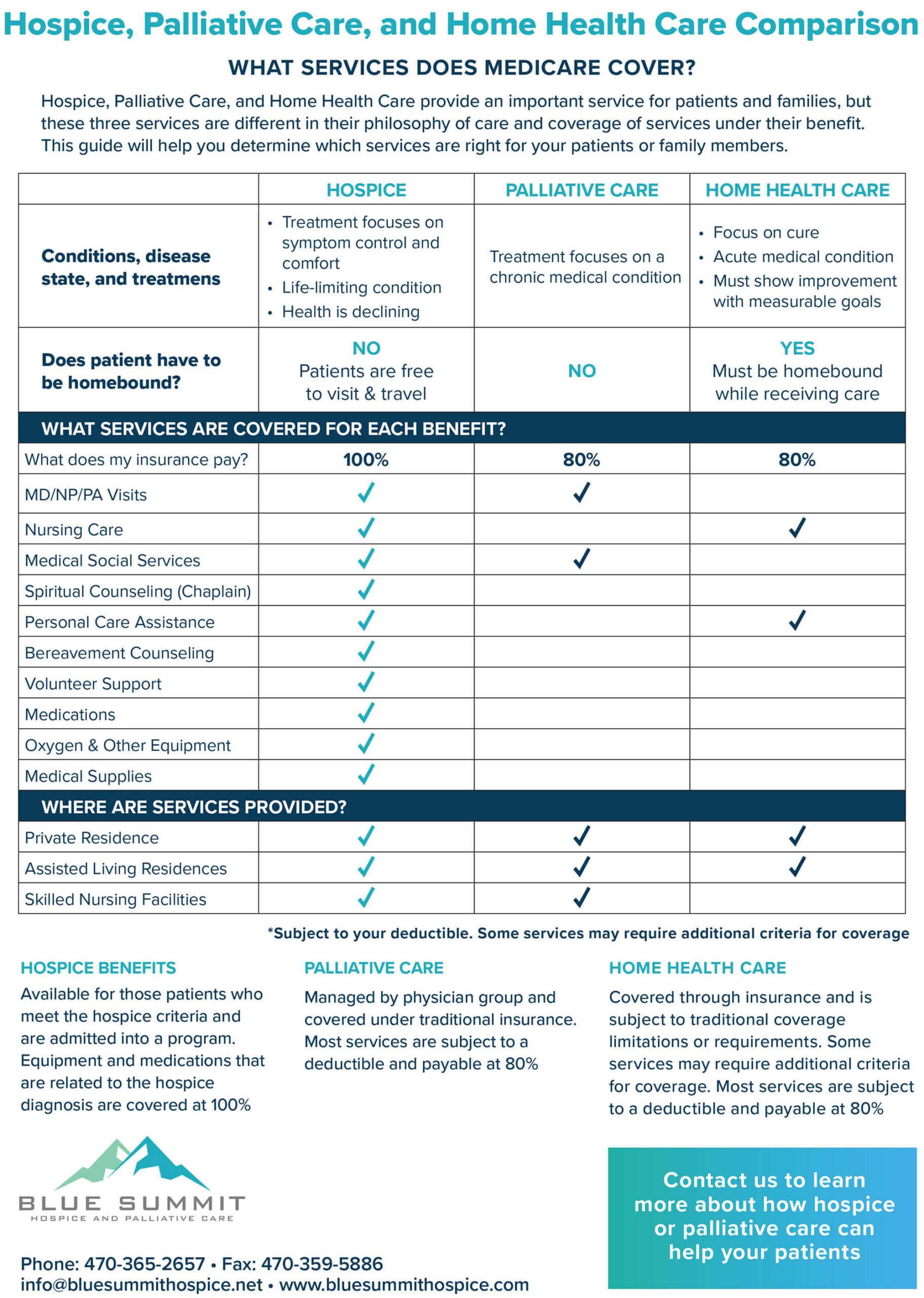What is Palliative Care?
Palliative care is specialized medical care designed for individuals facing serious, life-limiting illnesses but are not yet ready for hospice care. Its primary goal is to improve the quality of life by providing relief from symptoms and stress associated with chronic or terminal illnesses. This type of care focuses on managing pain, discomfort, and emotional challenges while helping patients and their families navigate complex medical decisions.
Unlike hospice care, palliative care can be provided alongside curative treatments, allowing patients to continue pursuing other medical interventions while receiving support for symptom management. Our team of experienced caregivers, including board-certified physicians and nurses, work closely with patients and families in Roswell, Cartersville, and Snellville, GA, to create individualized care plans that meet their unique needs.
Symptoms That Indicate Palliative Care May Be Needed
Palliative care is appropriate for anyone suffering from a serious illness, regardless of the stage of the disease. Some common symptoms that palliative care can help address include:
- Persistent or severe pain
- Shortness of breath or difficulty breathing
- Fatigue that interferes with daily life
- Nausea or vomiting from treatments
- Anxiety, depression, or emotional distress
- Difficulty sleeping or insomnia
- Appetite loss or unintentional weight loss
Why Palliative Care is Important
Serious illnesses often bring with them a host of challenging symptoms and side effects that can significantly impact a patient’s quality of life. Palliative care helps bridge the gap between active treatment and hospice care, ensuring that patients receive the support they need to manage symptoms effectively. By focusing on the relief of symptoms such as pain, nausea, and emotional distress, palliative care allows patients to continue living comfortably while making the most of their treatment options.
Another essential aspect of palliative care is the emotional and psychological support it provides to both patients and their families. Facing a serious illness can be overwhelming, and decisions about treatment options, care goals, and end-of-life planning can be difficult. Palliative care teams offer guidance, education, and emotional support, helping families make informed decisions and find comfort in the care process.
The Palliative Care Process
Palliative care is a patient-centered approach that involves a coordinated effort between healthcare providers, caregivers, and families. The process is designed to ensure that each patient’s physical, emotional, and spiritual needs are addressed:
- Initial Consultation: The palliative care team meets with the patient and family to assess the patient’s medical condition, symptoms, and personal preferences.
- Customized Care Plan: A tailored care plan is developed, focusing on symptom relief and improving quality of life. This plan may include pain management, emotional support, and assistance with decision-making.
- Symptom Management: The care team provides ongoing medical support to control pain, nausea, breathing difficulties, and other distressing symptoms.
- Emotional and Spiritual Care: Counselors and spiritual advisors offer support to both patients and families, helping them cope with the emotional challenges of serious illness.
- Coordination with Other Providers: The palliative care team works alongside other healthcare providers to ensure a seamless approach to the patient’s overall care.
Preventing Symptom Escalation and Unnecessary Hospitalizations
One of the main objectives of palliative care is to prevent the escalation of symptoms that can lead to emergency hospitalizations or unnecessary interventions. By actively managing pain, discomfort, and other symptoms, palliative care helps patients avoid the physical and emotional stress that often accompanies worsening illness.
In addition to symptom management, palliative care teams focus on preventing emotional distress that can arise from fear or uncertainty about the future. Through ongoing counseling and support, patients and families can better cope with their circumstances, reducing the risk of anxiety or depression taking hold.
Living Well with Palliative Care
Palliative care allows patients to live as comfortably as possible, even in the face of serious illness. By controlling symptoms such as pain and fatigue, patients can continue to participate in daily activities, spend time with loved ones, and pursue treatments that align with their goals.
In addition to helping patients, palliative care also offers invaluable support to family members. Caregivers often bear the emotional and physical burden of caring for a loved one, and palliative care teams provide guidance, education, and respite, ensuring that families feel supported and informed throughout the care process.

Frequently Asked Questions
Is palliative care the same as hospice care?
No, palliative care is different from hospice care. It is available at any stage of a serious illness and can be provided alongside curative treatments, while hospice care is reserved for patients nearing the end of life.
Who is eligible for palliative care?
Palliative care is appropriate for anyone with a serious illness, including cancer, heart disease, lung disease, and neurological conditions. It is not limited to terminal patients.
Can I still receive treatment while receiving palliative care?
Yes, palliative care works in conjunction with other medical treatments. It is focused on managing symptoms and improving quality of life while patients pursue curative or life-prolonging treatments.
What types of symptoms does palliative care address?
Palliative care helps manage physical symptoms like pain, nausea, and breathing difficulties, as well as emotional and psychological issues such as anxiety and depression.
How is palliative care different from regular medical care?
Palliative care focuses specifically on relieving symptoms and improving quality of life, whereas regular medical care may prioritize treating the illness itself. Palliative care is patient-centered and holistic, addressing both physical and emotional needs.
Compassionate Support When You Need It
Palliative care is an essential service for individuals facing serious illnesses. It helps them manage symptoms, navigate treatment options, and maintain a higher quality of life by providing personalized care that focuses on comfort, relief, and emotional support. Palliative care helps patients continue living well even as they confront the challenges of a serious health condition.
If you or a loved one could benefit from palliative care, contact us today. Our team is here to provide compassionate, expert care that meets your unique needs and supports you through every stage of your illness.

